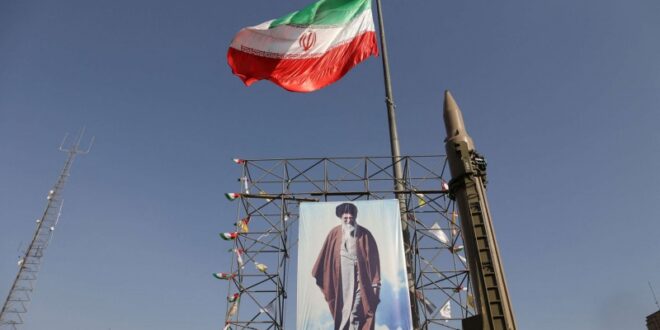Ursula Vonk
As Israel and Iran inch closer to war, the specter of nuclear conflict looms ever larger. Even if Iran remains non-nuclear, a conventional war could still escalate to a point where Israel considers deploying its nuclear arsenal. This is a sobering reality often overlooked in discussions about the Middle East’s volatile future. A conflict between these two nations is unlikely to remain contained, as both countries would vie for “escalation dominance” in a high-stakes game of risk.
In the worst-case scenario, Israel could opt for what military strategists term an “asymmetrical nuclear war,” where only one side employs nuclear weapons. But if Iran crosses the nuclear threshold, the conflict could spiral into a “symmetrical nuclear war,” with both sides unleashing weapons of mass destruction. Even if Israel holds the upper hand in terms of nuclear capability, the mutual devastation would be catastrophic.
This terrifying possibility is rooted in the anarchic structure of international relations. The absence of a global authority to mediate or control states, a situation first identified by 17th-century philosopher Thomas Hobbes, leaves nations like Israel and Iran reliant on their own military might for survival. In such an anarchic world, Hobbes argued, “there is no common power to keep them in awe.” The same holds true today—there is no global policeman to prevent a nuclear war in the Middle East.
The Risks of Preemption
Israel faces difficult choices as it assesses Iran’s military capabilities, especially with Tehran on the verge of nuclear status. Preemptive strikes against Iranian nuclear facilities have been discussed for years, justified under the doctrine of “anticipatory self-defense.” This legal principle allows a state to strike first when facing an imminent and existential threat.
Iran’s repeated declarations of hostility toward Israel—sometimes genocidal in tone—provide a legal and strategic rationale for preemptive action. But while the law may permit such strikes, their consequences would be far-reaching. Israel is no stranger to preemptive action, having previously struck nuclear facilities in Iraq (1981) and Syria (2007), but Iran presents a far more complex and dangerous challenge.
The stakes are higher today. If Israel strikes Iran, it risks provoking not only a conventional counterattack but potentially a broader regional war involving Iran’s proxies, like Hezbollah. The sheer scale of Iran’s military, combined with its ability to mobilize proxy forces, could overwhelm Israel’s defenses and lead to a devastating, multi-front war.
The Role of Nuclear Deterrence
In this precarious landscape, Israel’s nuclear deterrent remains its ultimate insurance policy. As long as Israel’s enemies believe that any attack could trigger a nuclear response, they may think twice before launching a full-scale assault. This concept is deeply rooted in military strategy; the ancient Chinese general Sun-Tzu famously wrote that “the greatest victory is that which requires no battle.” Israel’s goal, therefore, is to deter its enemies without ever having to use its nuclear weapons.
But this is a delicate balance. If Iran becomes a nuclear power, the deterrence dynamic will shift dramatically. In a nuclear-armed Middle East, the risks of miscalculation or accidental escalation would skyrocket. Even a small-scale conflict could quickly spiral out of control, with both sides tempted to use their nuclear arsenals preemptively to avoid being struck first.
A World of Uncertainty
The Israeli-Iranian standoff is not occurring in a vacuum. Global tensions, from Russia’s aggression in Ukraine to the simmering nuclear standoff between the United States and North Korea, all contribute to an increasingly unstable international system. In such a world, regional conflicts can quickly escalate into global crises.
For Israel, the challenge is not just defending itself against Iran but navigating an international landscape where nuclear powers across the globe are flexing their muscles. In this context, Israeli decision-makers must consider the broader implications of any military action. A strike against Iran could trigger a chain reaction, involving not only the Middle East but also global powers with vested interests in the region.
The Final Gamble
In the end, Israel’s decision-makers must weigh the risks of preemption against the catastrophic consequences of inaction. If Israel believes that Iran is on the verge of acquiring nuclear weapons, the temptation to strike first will be immense. But the costs of such an action, both in human lives and geopolitical stability, could be staggering.
The world stands on the edge of a precipice. Without a “common power” to mediate disputes, as Hobbes warned, nations are left to fend for themselves in a brutal, anarchic world. For Israel, this means relying on nuclear deterrence as a last resort. But if that deterrence fails—if the balance of terror is upset by a nuclear Iran—the consequences could be unimaginable.
In a world where nuclear weapons still represent the ultimate guarantee of national survival, Israel’s most critical challenge is ensuring that its deterrence remains credible. The clock is ticking, and the future of the Middle East—and possibly the world—hangs in the balance
 Geostrategic Media Political Commentary, Analysis, Security, Defense
Geostrategic Media Political Commentary, Analysis, Security, Defense





